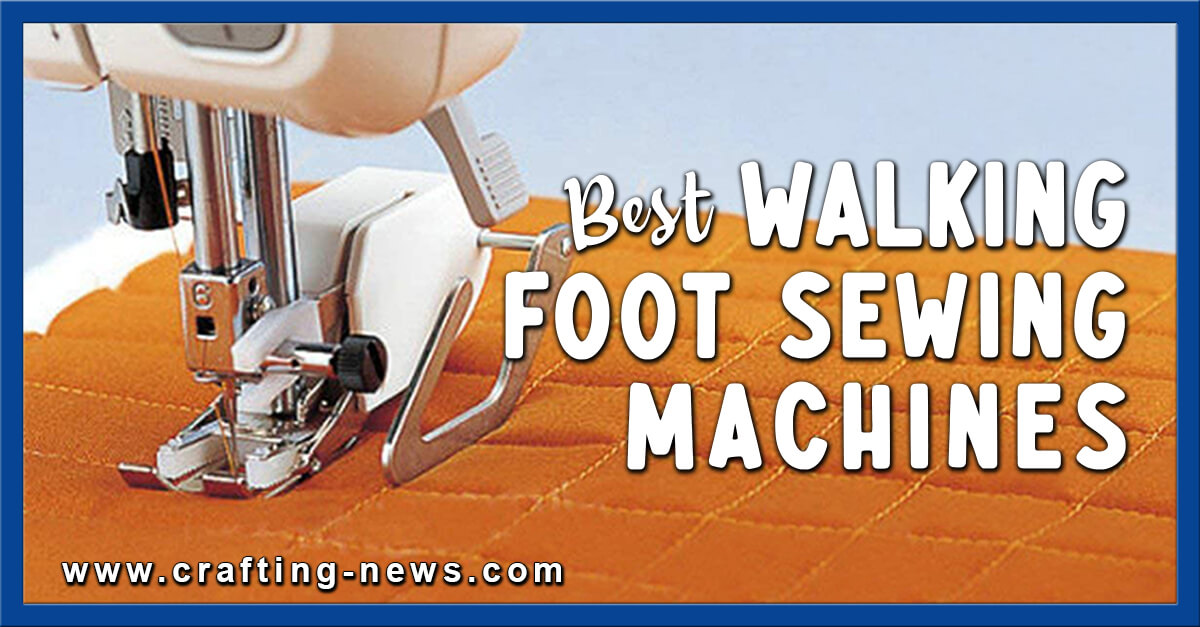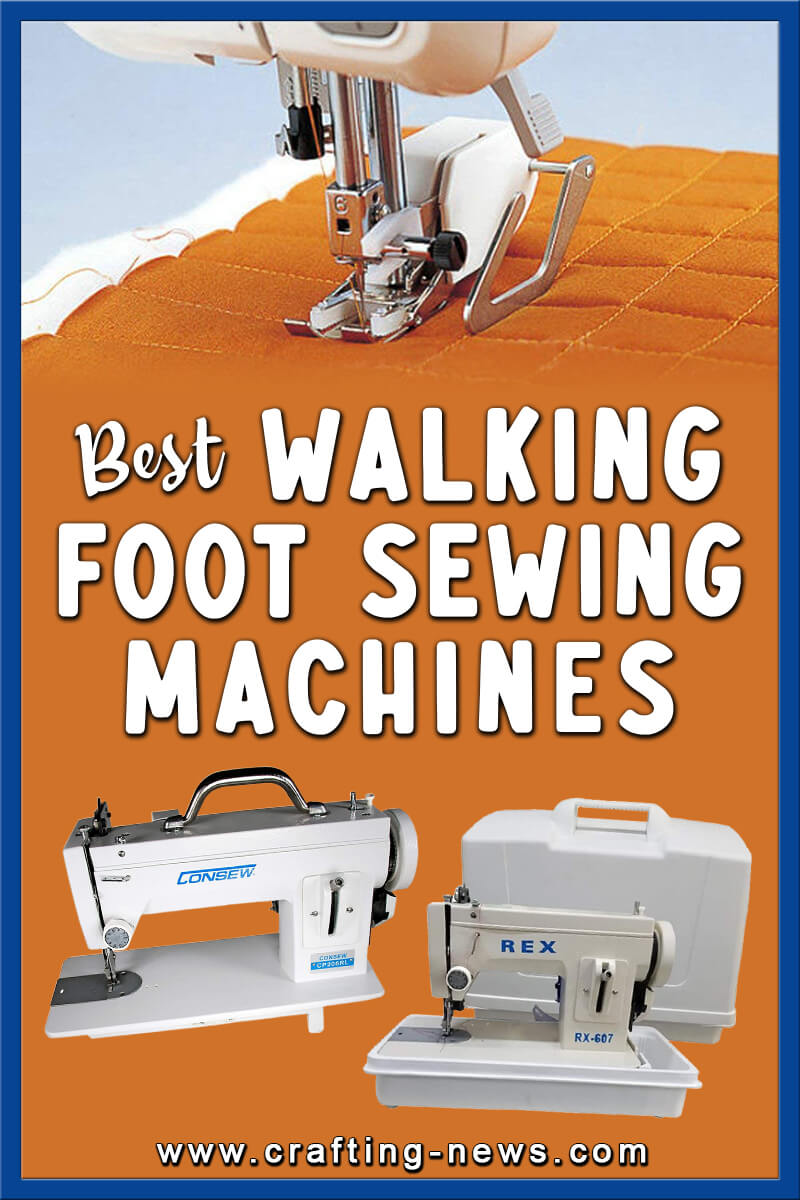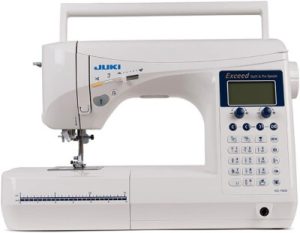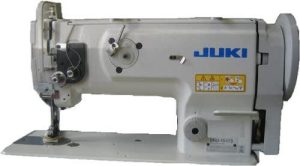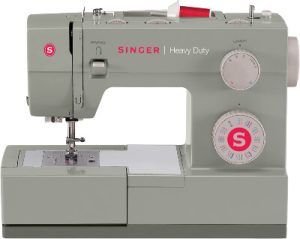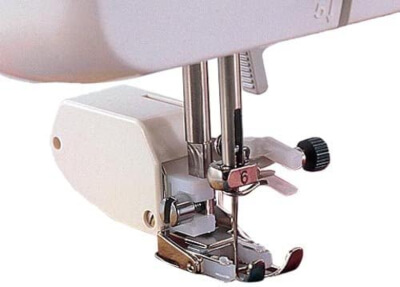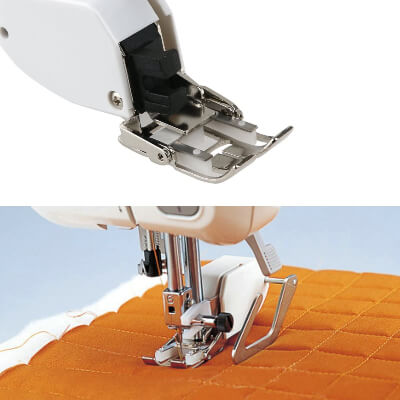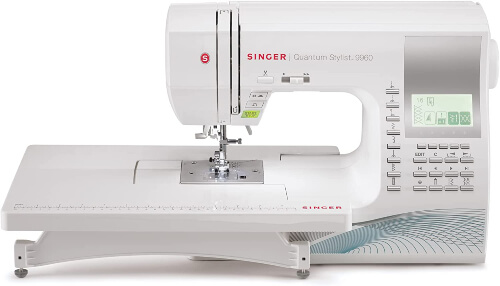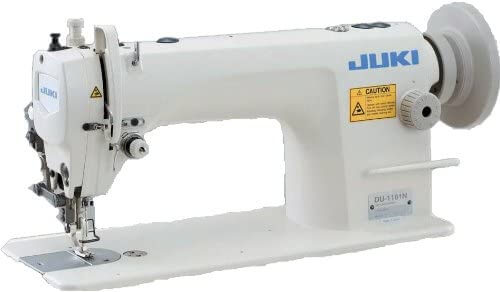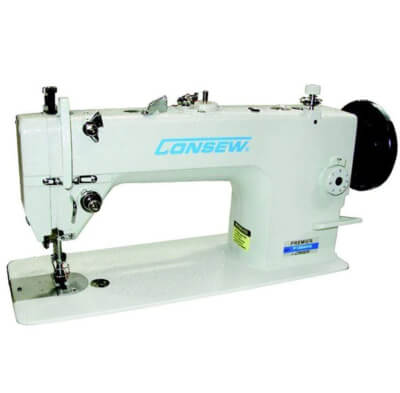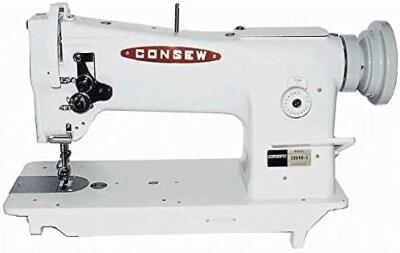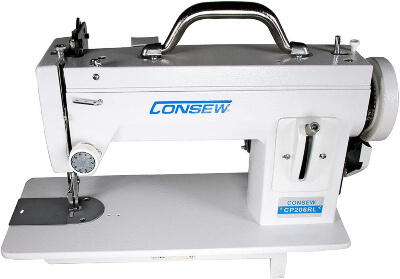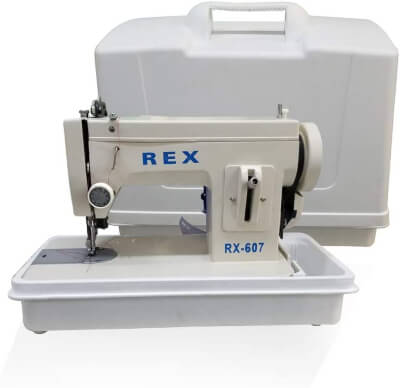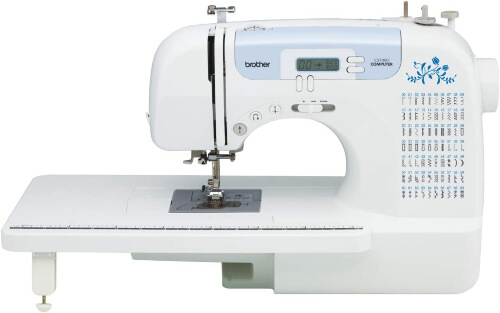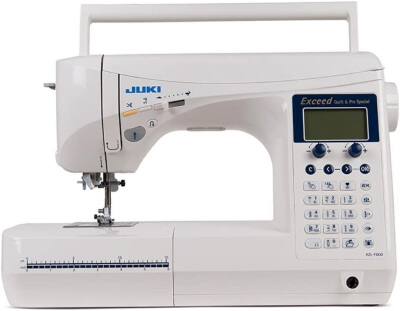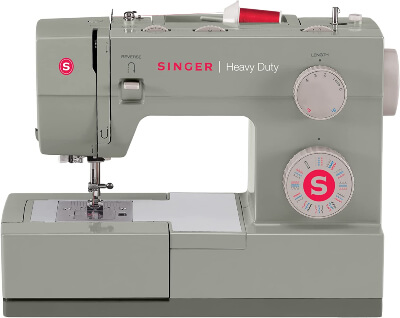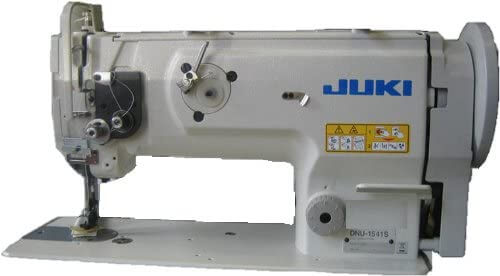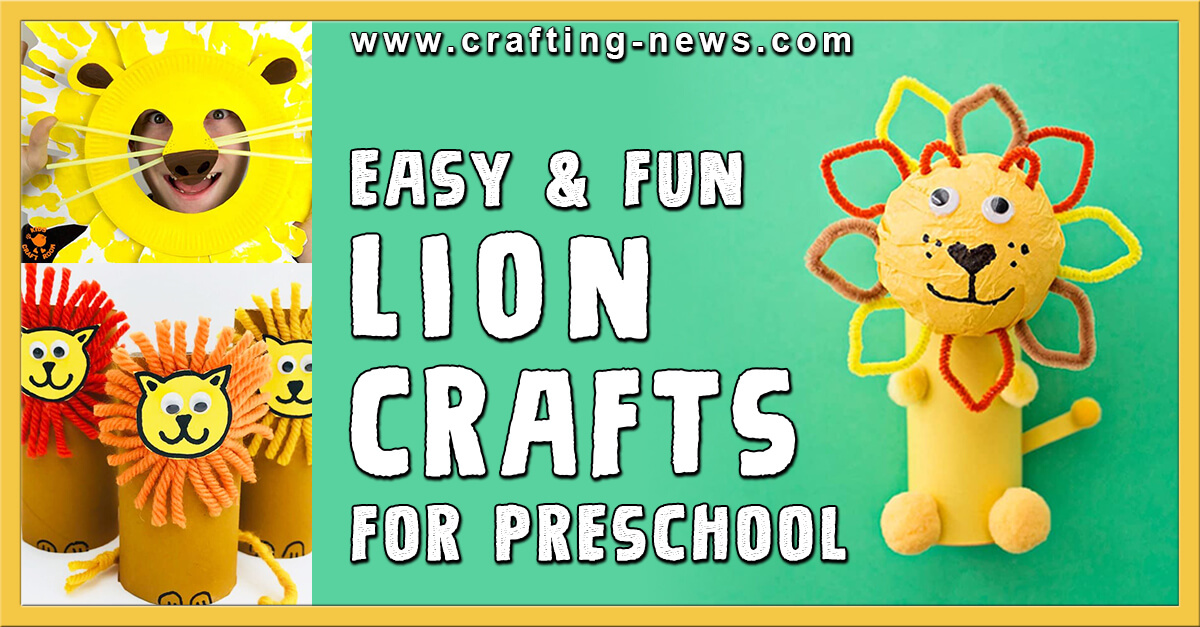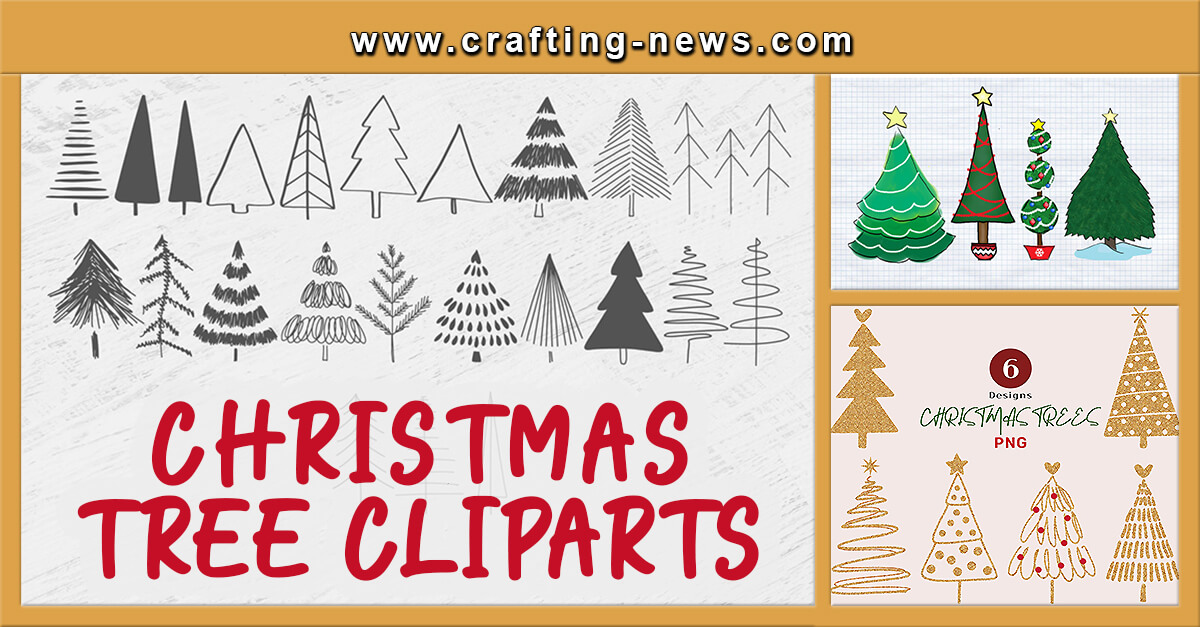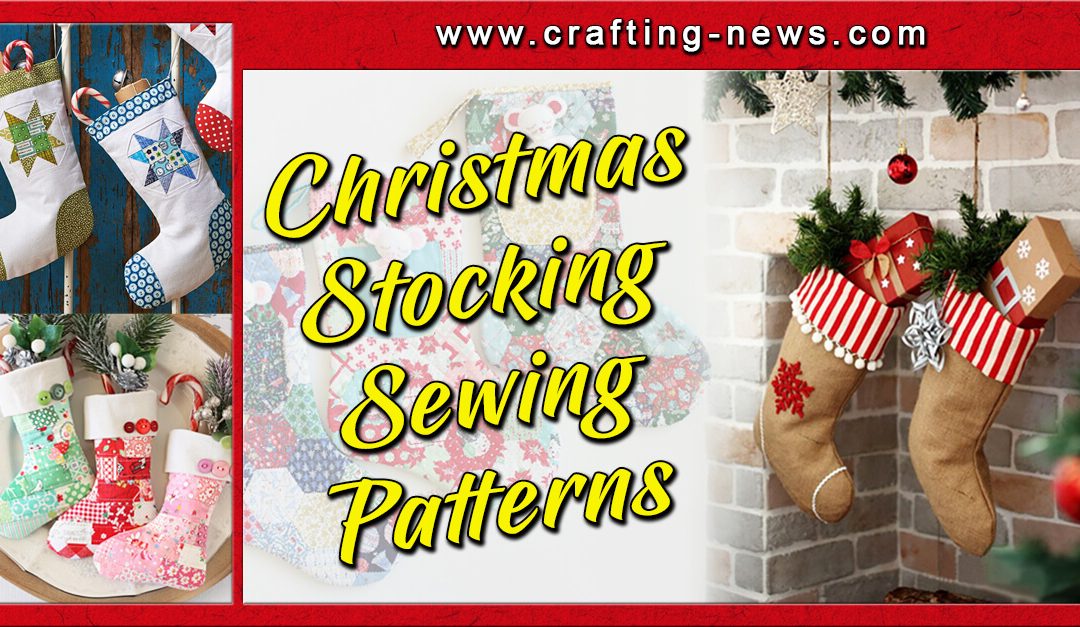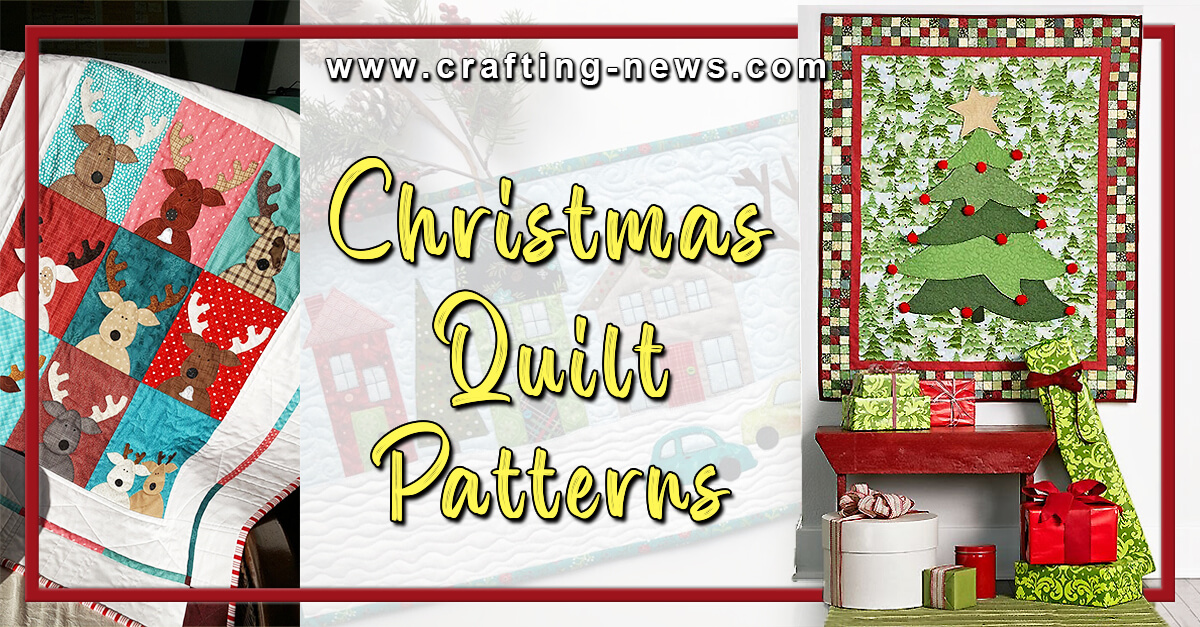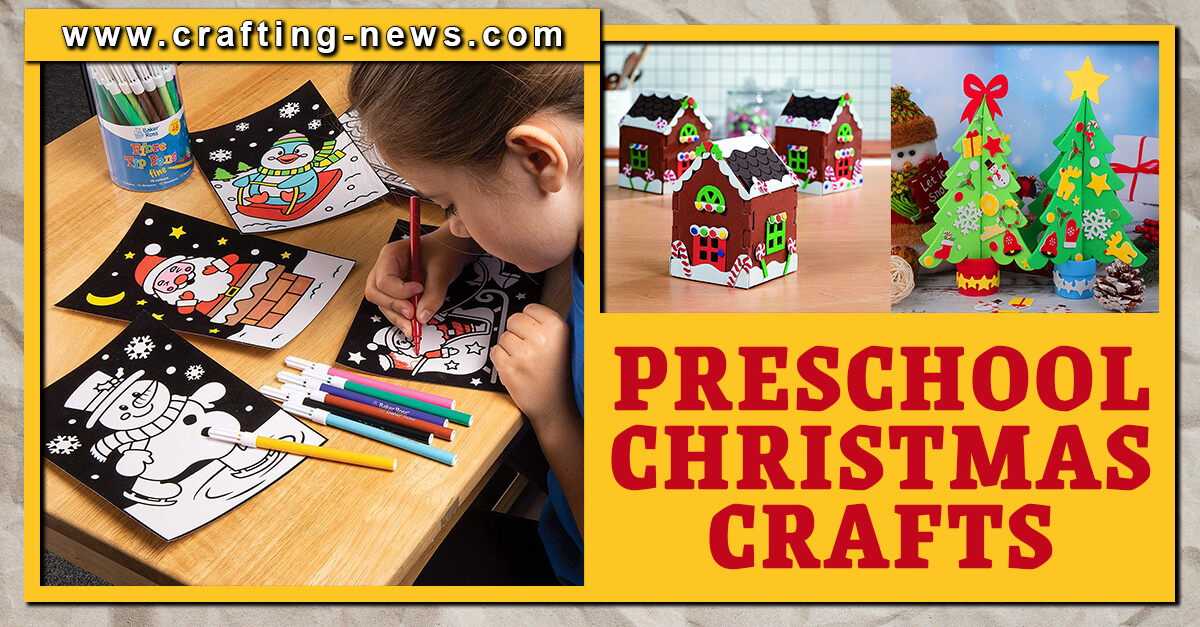Regular sewing machines are great for casual home sewers. But if you are a quilter or sew thick projects, you need a walking foot sewing machine. A walking foot feeds the fabric through the machine smoothly. This creates more professional stitches and reduces bunching.
Top 3 Picks for the Best Walking Foot Sewing Machines
Best Overall
Juki HZL-F600 Full Sized Computer Sewing and Quilting Machine
The JUKI HZL-F600 is a great beginner-friendly walking foot sewing machine. It has loads of functions, 225 stitches, including 4 lettering fonts, and 16 professional buttonholes.
Premium Choice
JUKI DNU-1541 Industrial Walking Foot Sewing Machine
Juki DNU 1541 industrial walking foot sewing machine is the ideal piece of equipment for small businesses. It was designed to sew layers of heavy duty fabrics with ease.
Great Value
Singer Heavy Duty 4452 Sewing Machine with 110 Stitch Applications
It is hard to beat the Singer Heavy Duty 4452 walking foot sewing machine when it comes to value. This inexpensive machine has 32 built-in stitches and a maximum speed of 1,100 stitches per minute.
What is a Walking Foot Sewing Machine?
A walking foot is an accessory that comes with some sewing machines. The walking foot helps feed fabric smoothly through the sewing machine while you are stitching. It is an important piece for anyone that sews heavy materials or multiple layers.
Types of projects that benefit from sewing machines with walking foot are:
- Slipper fabrics
- Knits
- Hems
- Quilting
- Straps
- Any multiple layer projects
Why Do You Need a Walking Foot Sewing Machine?
If you sew more than one or two layers of fabric, you can benefit from a walking foot sewing machine. A normal sewing machine has feed dogs underneath the fabric. The feed dogs can move the fabric easily. However, if you are sewing multiple layers of fabric, the top pieces do not feed along smoothly with the bottom layers. This is where the walking foot comes in handy.
How to Care for a Walking Foot Sewing Machine
Walking foot sewing machines require the same maintenance as other sewing machines. Since every manufacturer’s machine is different, always read the manual. The manual will inform you how to get the best out of your machine.
To keep your walking foot sewing machine in proper working order, regular maintenance is essential. Regular maintenance often includes:
- Change the needle regularly
- Lubricate all moving parts
- Keep screws tightened
- Replace damaged or missing screws
- Remove lint and debris before and after every use
- Never use bent or damaged needles
- Keep it covered when not in use
- Have it professionally serviced every few years
Benefits of Using a Walking Foot Sewing Machine
If you have ever sewn slippery fabrics, thick fabrics, or multiple layers, you know that the bottom feed dogs can have a hard time moving the fabric through the machine. The use of a walking foot helps move the fabric through easily. But that is not the only benefit of a walking foot.
Other benefits include:
- Prevent shifting
- Inhibits puckering
- Eliminates ripples
- Keeps layers together
- Great for matching plaids and stripes
- Moves leathers and plastics easily
What to look for in a Walking Foot Sewing Machine
Walking foot sewing machines are comparable to regular sewing machines. However, they include a walking foot attachment that makes sewing easier and more enjoyable.
When searching for the best walking foot sewing machine, look for:
- Frame Construction
A walking foot sewing machine can experience more wear than a regular sewing machine. Look for a machine that has a durable metal frame. Metal frames last longer and can handle more abuse.
- Speed
The best walking foot sewing machines can sew at least 800 to 1000 stitches per minute.
- Weight
When sewing multiple layers of fabric, sewing machines can experience extreme bouncing. A walking foot sewing machine needs to be heavy. The weight of the machine will help keep the machine in place. The less bouncing, the better your stitches will be.
- Number of Stitches
All sewing machines come with at least one built-in stitch. Look for a machine that has all the stitches you need. If you sew a lot of different projects, you will want to be able to choose from a wide variety of stitches.
- Extra Features
Extra features are intended to make sewing easier. Before you make your final decision, check to see if the walking foot sewing machine has everything you want. The most common features you will come across are an automatic needle threader, self-cutting thread feature, clear bobbin cover, LCD screen, and speed control.
- Price
Sewing machines vary greatly in price. Before you start looking, know your budget.
10 of the Best Sewing Machines with Walking Foot
1. Singer Quantum Stylist 9960 Computerized Portable Sewing Machine
The Singer Quantum Stylist 9960 sewing machine is portable and convenient to use.
Why We Like the Singer Quantum Stylist 9960
This machine has plenty of stitches for beginners as well as experienced sewers. You can personalize your projects with the 1,172 stitch applications.
- Large Selection of Stitches
The Singer Quantum Stylist offers a wide variety of stitches. From basic and quilting to decorative. There are 600 built-in stiches.
- Automatic Needle Threader
The automatic needle threader removes the frustration of threading the needle.
- Mirror Imaging
With this machine you can invert your stitch patterns from side to side.
Pros and Cons of the Singer Quantum Stylist 9960
Pros:
- 600 built-in stitches
- 1172 Stitch applications
- Built-in lettering
- Mirror imaging
- Clear bobbin cover
- LCD Screen
- Speed control
- Programmable patterns
- Automatic needle threader
- Self-cutting thread feature
- 13 one-step buttonhole styles
- Good for beginners and advanced level users
Cons:
- Heavy
- Cannot hook to computer
- Not great for embroidery
2. JUKI DU-1181N Industrial Top and Bottom Feed Sewing Machine
The JUKI DU-1181N has a powerful top and bottom feed mechanism. It will smoothly feed difficult-to-feed materials easily and produces consistent seam quality.
Why We Like the JUKI DU-1181N
The JUKI DU-118N sewing machine has a powerful top and bottom feed mechanism. The machine can feed even the most difficult fabrics through smoothly.
- Double Capacity Hook
This sewing machine comes with a horizontal-axis double-capacity hook. It decreases the need to change the bobbin thread frequency and increases efficiency.
- Automatic Lubricating Mechanism
The JUKI DU-118N has a pump-unit type automatic lubricating mechanism. It significantly improves maintainability
- Low Vibration
The machine head was constructed for optimum balance. This helps reduce vibration and noise.
Pros and Cons of the JUKI DU-1181N
Pros:
- Lockstitch machine
- Double capacity hook
- Automatic lubricating mechanism
- 2000 Stitches per minute
- High pressure foot lift
- Low vibration
- Low noise
Cons:
- Assembly required
3. Consew Upholstery Industrial Walking Foot Sewing Machine with Table
The Consew P1206RB sewing machine was designed for anyone that sews a wide variety of fabrics.
Why We Like the Consew P1206RB
If you are an avid sewer that works on a lot of different projects, this walking foot sewing machine is for you. The machine can stitch 3000 stitches per minute without jamming or binding your fabric.
- Fast
The Consew P1206RB walking foot sewing machine is fast. It can sew up up to 3000 stitches per minute.
- Durable
The upholstery sewing machine was made to last for years.
- Professional Results
This machine creates even professional looking stitches.
Pros and Cons of the Consew P1206RB
Pros:
- 3000 Stitches per minute
- Adjustable oil flow
- Reverse
- Hand and knee presser foot lift
- Large horizontal axis hook
- Locking stitch regulator
- Adjustable upper thread tension
- Built-in bobbin winder
Cons:
- Only one stitch option
- Expensive
- Big
- Not portable
- Bobbin can be hard to install and remove
4. Consew 206RB-5 Walking Foot Needle Feed Industrial Sewing Machine
The Consew 206RB was designed for sewing lightweight and heavy duty fabrics. With this walking foot sewing machine, you can sew everything from clothing got to upholstery.
Why We Like the Consew 206RB
This heavy duty sewing machine was developed for people that sew all types of projects.
- Light to Heavy Weight Fabrics
The Consew 206RB-5 can sew a wide variety of fabrics with ease.
- Adjustable Reverse Stitching
The adjustable reverse stitching can be set to the same length as the forward stitch
- Large Bobbin
You do not have to constantly rewind your bobbin thanks to its large capacity.
Pros and Cons of the Consew 206RB
Pros:
- 3300 Stitches per minute
- Safety clutch
- High presser foot lift
- Simple foot adjustment
- Walking foot
- Large horizontal axis hook
- Thread release finger
- Extra long stitch
- Adjustable reverse stitching
Cons:
- Big
- Not portable
- 1 Stitch option
- Expensive
5. Consew CP206RL Portable Walking Foot Machine
The Consew CP206RL walking foot sewing machine can handle all types of materials. Even though it is a powerful, heavy duty sewing machine, you can take it with you wherever you need it.
Why We Like the Consew CP206RL
This machine was designed to stitch heavy duty fabrics with ease. You can work on all types of projects from auto upholstery to handbags and apparel.
- Heavy Duty
The machine was designed for sewing light to heavy-weight materials such as leather, vinyl, upholstery, synthetics, canvas, and more.
- Lockstich
This lockstitch sewing machine produces strong, straight seams.
- Carrying Case
Keep your machine clean and dust free when not in use with the plastic case.
Pros and Cons of the the Consew CP206RL
Pros:
- 800 Stitches per minute
- Lockstitch machine
- Drop feed
- Horizontal oscillating hook
- Plastic carrying case
Cons:
- Poorly written manual
- Hard to control speed
6. REX 607Z Portable Walking-Foot/Zigzag with LED Light Sewing Machine
The REX 607Z portable sewing machine is the ideal machine for home sewers. It is lightweight, portable, and can sew multiple layers at once.
Why We Like the REX 607Z
This portable machine is perfect for making alterations and repairs on site.
- Metal Frame
The metal frame provides durability and reliability.
- Portable
Take this machine wherever you need it. Make repairs right on a boat or in an RV.
- Zig Zag Stitch
The zig zag stitch comes in handy for projects such as upholstery, curtains, and backpacks.
Pros and Cons of the REX 607Z
Pros:
- 1200 Stitches per minute
- Portable
- Zig Zag and Straight Stitch
- Reversel
- Adjustable length
- Metal frame
Cons:
- Requires a lot of upkeep
- Settings need adjusted a lo
7. Brother CS7000i Sewing and Quilting Machine
The Brother CS7000i is a great walking foot sewing machine for quilters. It includes a wide table designed for quilts and other large projects.
Why We Like the Brother CS7000i
The Brother CS7000i sewing machine is the ideal sewing machine for home sewers and beginner quilters.
- 70 Built-in Stitches
The Brother CS7000i computerized sewing machine has 70 built-in stitches including utility, quilting, decorative, and heirloom.
- LCD Screen
The LCD screen makes it easy to select your stitches.
- Wide Extension Table
The wide detachable table makes it easy to maneuver large projects while you work.
Pros and Con of the Brother CS7000i
Pros:
- 70 Built-in stitches
- Automatic needle threader
- 7 Auto-size buttonholes
- Adjustable stitch speed
- LCD Display
- Variable speed control
- Drop-in top bobbin
- Large detachable extension table
- Protective hard case
Cons:
- Thread is known to catch in buttonholes
- Cannot handle heavy-duty fabric
8. Juki HZL-F600 Full Sized Computer Sewing and Quilting Machine
The JUKI HZL-F600 is a beginner-friendly walking foot sewing machine. It is a computerized machine with lots of functions.
Why We Like the JUKI HZL-F600
The computerized walking foot sewing machine is equipped with 225 stitches including 4 lettering fonts, and 16 professional buttonholes.
- Quick Threading System
With this quick threading system, you can thread the needle with the push of a lever.
- Electronic Buttonholes
This JUKI walking foot sewing machine can automatically measure and evenly sew on both the right and left sides.
- Combine, Save and Recall
The machine gives you the ability to combine stitches or lettering into pattern sequences. Once you create your design, you can save it in the JUKI sewing machine’s memory.
Pros and Cons of the JUKI HZL-F600
Pros:
- 225 Stitches
- 16 Buttonhole styles
- Electronic buttonholes
- One touch pattern selection
- Automatic needle threader
- Quick thread bobbin case
- Machine memory
- Auto or manual tension settings
- Large extension table
- Direct pattern selection
- Free-motion quilting
- Adjustable cutting widths
Cons:
- Bobbin can jump out of place
- Stitches are not as professional as other machines
9. Singer Heavy Duty 4452 Sewing Machine with 110 Stitch Applications
The Singer Heavy Duty 4452 Sewing Machine is one of the best selling machines on the market. It has a metal frame, powerful motor and is easy to use.
Why We Like the Singer Heavy Duty 4452
The Singer Heavy Duty 4452 walking foot sewing machine is fast and sturdy. It can sew heavy duty fabrics with ease.
- 1,100 Stitching Speed
This machine is fast. It can sew up to 1,100 stitches per minute.
- Heavy Duty Frame
The walking foot sewing machine has a heavy duty metal frame. This will help to ensure that the machine lasts for years to come.
- Transparent Bobbin Plate
The transparent bobbin plate makes it easy to see how much thread is left.
Pros and Cons of the Singer Heavy Duty 4452
Pros:
- 1,100 stitches per minute
- 32 built-in stitches
- 110 Stitch applications
- LED lighting
- Automatic needle threader
- Powerful motor
- Adjustable stitch length
- Heavy duty frame
- Drop in bobbin feature
- Extremely affordable
- Free arm
- Automatic 1-step buttonhole
Cons:
- Still has a lot of plastic parts
- Limited stitches
- Needle threader is delicate
10. JUKI DNU-1541 Industrial Walking Foot Sewing Machine
Juki DNU 1541 industrial sewing machine can sew layers of heavy duty fabrics with ease.
Why We Like the Juki DNU 1541
This sewing machine delivers consistent seam quality every time. It is the ideal walking foot sewing machine for small businesses that work with heavy duty fabrics.
- Knee Lifter Mechanism
There is a built-in knee-lifter mechanism built-in the bed.
- Lubricating Mechanism
The walking foot sewing machine has a lubricating mechanism that uses a centralized oil wick.
- Built-in Walking Foot
The walking foot mechanism is built into the machine’s arm. This helps to prevent oil from leaking.
Pros and Cons of the Juki DNU 1541
Pros:
- Automatic Reverse Feed Function
- Pneumatic auto-lifer
- Automatic reverse feed function
- 2500 Stitches per minute
- 9mm Maximum stitch length
- Knee lifter mechanism
- Lubricating mechanism
Cons:
- Expensive
- Large learning curve
Top 3 Picks for the Best Walking Foot Sewing Machines
Best Overall
Juki HZL-F600 Full Sized Computer Sewing and Quilting Machine
The JUKI HZL-F600 is a great beginner-friendly walking foot sewing machine. It has loads of functions, 225 stitches, including 4 lettering fonts, and 16 professional buttonholes
Premium Choice
JUKI DNU-1541 Industrial Walking Foot Sewing Machine
Juki DNU 1541 industrial walking foot sewing machine is the ideal piece of equipment for small businesses. It was designed to sew layers of heavy duty fabrics with ease.
Great Value
Singer Heavy Duty 4452 Sewing Machine with 110 Stitch Applications
It is hard to beat the Singer Heavy Duty 4452 walking foot sewing machine when it comes to value. This inexpensive machine has 32 built-in stitches and a maximum speed of 1,100 stitches per minute.
Sewing thick fabrics and multiple layers can be difficult. Make sewing easier with a walking foot sewing machine.
If you are a quilter or find yourself sewing heavy duty fabrics or multiple layers, you will benefit from a walking foot sewing machine. These machines are designed to smoothly move fabric through your machine. Using a walking foot sewing machine will prevent shifting and eliminate puckering.
We want to hear your feedback on our Facebook Page.
And that’s our round-up of the best walking foot sewing machines.

